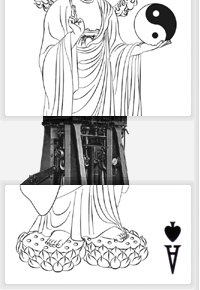Earlier there has been a question posted in this blog (in fact it was a response to my Chinese essay), querying how on earth the practice of male succession right in the New Territories still exists and is so inconsistent with our 21st century modern Hong Kong . Although I am not an expert in this area of law, nor was I given any opportunity to explore it during my study of law degree, I am more than happy to share my limited knowledge to this branch of law with you all blog viewers.
Before discussing land succession in New Territories, perhaps we should first examine the land ownership system in Hong Kong. Theoretically in Hong Kong, there is no private land ownership, or alternatively known as fee simple land in legal context. All land before the handover belonged to the British Crown, and now after 1997, being the property of the PRC government. Thus land in Hong Kong, except the St John Cathedral, is leased out by the government under a lease term or condition of grant, and the said lease nowadays usually lasts until 2047. And under this system, government rent (previously known as crown rent) is payable by all landowners / lessees in Hong Kong. But as the land in the New Territories was not ceded to the British in 1898 as Hong Kong Island in 1842 and Kowloon Peninsula in 1860, and in order to pacify the natives who were once very against the British exercise of sovereignty on their soil, the Colonial government allowed the natives, otherwise known as indigenous inhabitants (原居村民), to retain their land ownership. In fact, in the early 20th century (1908 I guess), the Colonial government hired a group of Indians to conduct a large-scale investigation on New Territories land and eventually they drew up an official land ownership record called the Block Crown Lease, which recorded all the land partitions and owners’ details. The Block Crown Lease as a title document in proving land ownership in New Territories does not pale into insignificance after the handover.
The Small House Policy (丁屋政策), or the exclusive right of indigenous male inhabitant to build a 3-storeyed house on a designated piece of land, has its legal basis under section.7 of the New Territories Ordinance (新界條例)Cap.97 and section.5 of the New Territories Land (Exemption) Ordinance (新界土地(豁免)條例)Cap.452. Under the present system, any male of 18 with paternal ancestry in an established village in the New Territories since 1898, is regarded as indigenous inhabitant. Once coming to full age, they could then bring their applications for the erection of small houses to the District Lands Office (it is a very complicated matter with which I am still struggling). The building of the said small house must be confined to the four corners of the District Lands Office’s prescription and they are not allowed to sell the said small houses within 5 years from their completion. However, many of these people are unable to afford the construction of the houses at their own expenses and therefore they choose to ‘sell’ their exclusive right to some land developers under a ‘secret’ agreement long before their applications. So in name the titles of ownership to the small houses are still retained by the indigenous inhabitants, but in fact they all belong to the land developers.
It is noteworthy that the right of indigenous inhabitants in relation to succession and land ownership also has its constitutional status by virtue of article.40 of the Basic Law, according to which the interest of the indigenous inhabitants is protected by the Hong Kong Special Administrative Region. Inevitably any attempt or legislation with the intent to abolish such system of inheritance would be ruled as being contrary to the Basic Law and unconstitutional by the court.
This unique system gives rise to another interesting exception to the English common law. According to the English Trust Law, capital of a private trust must be disposed of after 80 years since its creation and no trust ownership in relation to land could last more than 80 years as provided in section.6(1) of the Perpetuities and Accumulations Ordinance (財產恆繼及收益累積條例) Cap.257. Yet land ownership by clans, namely the Tsos (祖) and Tongs (堂), would fall outside the ambit of this rule. Tsos and tongs are respectively Chinese family trust funds that are administrated by a manager, usually a respectable family member, and hold lands for the benefit of the family descendants and for the purpose of the ancestral halls and tombs maintenance.
I remember long before the handover, the ex-Legislative Council Member Ms Christina Loh’s(陸恭蕙) proposal to abolish the indigenous inhabitants’ succession right was met with vehement protest and uproar from the villagers outside the Legislative Council and Mr Kan Ping Chee(簡炳墀), one of the most outspoken ‘elites’ in the New Territories, even openly incited the villagers to rape her. Strangely enough Kan was never prosecuted or threatened to be prosecuted or reproached by the public/media for his vulgar outspokenness while last Summer a disc-jockey of Commercial Radio Sammy Leung Chi Kin(森美)was nearly prosecuted for a harmless ‘practical joke’ he made in his programme. This further attests there is no equality before law.
An Ancient Practice in the Modern World
標籤:
左冷禪,
法律隨筆
訂閱:
發佈留言 (Atom)



4 留言:
fuckingly boring.
why don't you write more of your erotic day-dreams?
題外話,我個人對法政一曉不通,詫見近月法庭裁決之刑罰都偏向從輕發落,這現象與將判刑的退休高院法官李柏儉案會否有關呢?
Came across your post totally by accident, someone apparently went from your blog to mine, but I must say this was a fascinating revelation to me about land tenure in Hong Kong!
Best wishes,
Dumb Ox
發佈留言